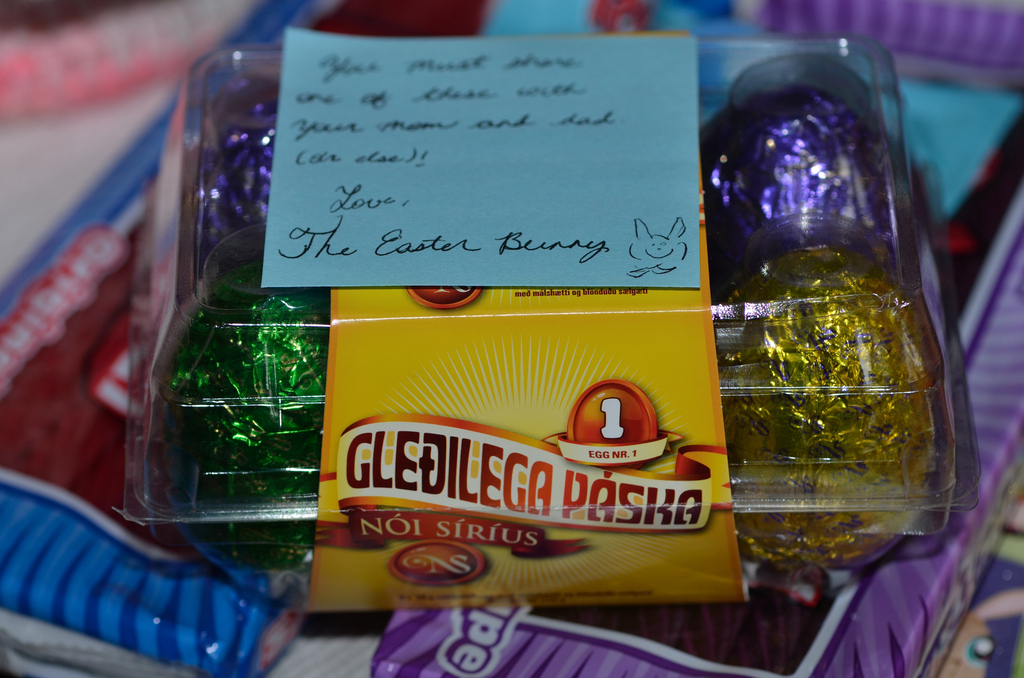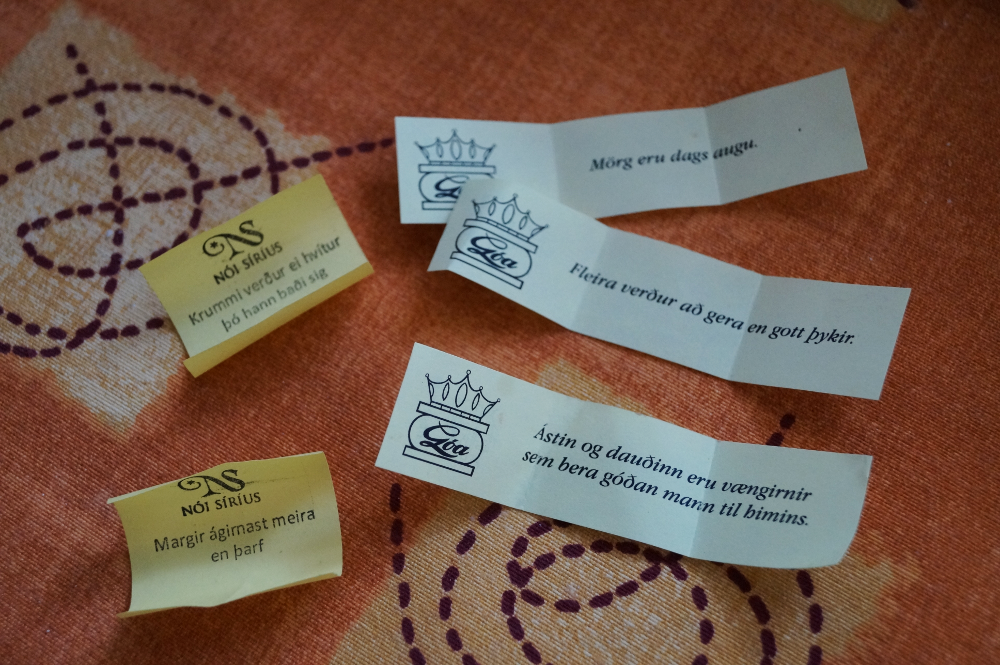
Gleðilega Páska frá Páskaland by FlackJacket2010 at Flickr.
What’s Easter without the Icelandic tradition of people giving each other gigantic chocolate eggs filled with more chocolate, candy and proverbs? Not a proper Easter says I! The eggs must absolutely be of the Icelandic variety too, nothing else will do unless… unless the eggs meet a certain criteria.
The chocolate itself is delicious but while people do love the candy, the main treat are proverbs. One per egg, rolled up like a little fortune, often playfully treated as personal advice. Icelanders take these proverbs so seriously that some chocolate egg makers even include a note on the box if their eggs don’t for some reason come with one. I dread to think of the consequences if they didn’t give that warning… they’d have the company e-mail bursting of complaints coming back to work after the holidays.
In the recent years a disappointing type of a “proverb” has made an appearance, which too causes complaints: proverbs that aren’t proverbs but some kind of lame jokes such as “help help I can’t get out”. I’ve yet to find a person who would have been happy to find one such, the proverbs are serious business and a topic of many heated discussions when people try to figure them out. Yes, figure them out, the proverbs you get from the eggs can range anywhere from obvious to Medieval to just so rare and archaic that few people get the meaning. But don’t worry if you find one you simply cannot understand, Icelandic people always seem to know that one person whose understanding of proverbs is greater than google, so just give them a ring. If all else fails you can always post your proverb on social media and beg for help (by the way, there are few things as entertaining to watch as two proverb specialists disagreeing on the meaning of a proverb and battling it out either online or face to face over a cup of coffee and chocolate egg pieces).
Like every year we’ve managed to gather quite a good collection of proverbs (let’s forget how much chocolate we’ve obviously also eaten) so let’s have a look at them and try to figure out what they might mean. Just be prepared, understanding what’s written on them is only the first step, piecing together the real meaning is where the difficulty begins. Here’s a thought, try to guess the meanings of these proverbs based on the translations alone!
Krummi verður ei hvítur þó hann baði sig. (= The raven becomes no whiter though he bathed himself.)
Margir ágirnast meira en þarf. (= Many desire more than need.)
Mörg eru dags augu. (= Many are the eyes of a day./The day has many eyes.)
Fleira verður að gera en gott þykir. (= More should be done than what one considers good/enough.)
Ástinn og dauðinn eru vængirnir sem bera góðan mann til himins. (= Love and death are the wings that carry a good person to heaven.)
And an extra:
Sér eignar smali fé þó engan eigi sauðinn. (= The herder gathers the sheep for himself though he doesn’t own a single one.)
A little late but still, Hulda wishes all of you readers Happy Easter: Gleðilega páska!






